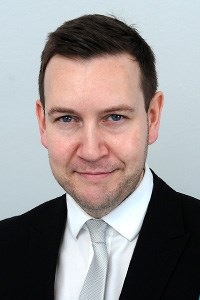Working across NHS trusts, integrated care systems, primary care and other parts of the NHS, communications professionals play a pivotal role in ensuring their organisations engage effectively with local communities, helping people understand how to access services and how to prevent illness.
They also lead on staff engagement with the NHS' 1.4 million employees – a key task given the health service is the UK's largest employer, and the fifth largest employer in the world.
When done well, NHS communications teams undertake a range of activities that help improve care for patients, make better use of resources and to help achieve the key objectives of their organisations.
NHS leaders increasingly recognise the strategic contribution that communications and engagement can make to their organisations and local systems, but in many ways the profession is at a crossroads and faces some enduring challenges that require attention.
What we believe to be the first ever benchmarking analysis across all parts of the NHS communications profession has been undertaken by the NHS Confederation, NHS Providers and Centre for Health Communications Research, in partnership with healthcare communications specialists Freshwater and Grayling, to help shine a light on these issues and hopefully lead to some concerted action.
High up the list of priorities is preparing for what is expected to be an election year. In some recent Ipsos polling, the NHS is now the joint top priority for the public and it will almost certainly be a major battleground issue. With public spending plans for 2025 onwards and beyond looking optimistic at best, we're increasingly seeing the Chancellor and other government figures targeting NHS and wider public sector 'waste', 'woke' and 'inefficiency'.
The communicators who responded to our survey were understandably concerned about this and the wider impact it will have on the reputation of local NHS organisations and for the NHS at a national level.
Deteriorating finances and reduced performance against key waiting time targets; the risks posed by upcoming changes to local services, such as planned reconfigurations that are likely to meet with resistance from the public; and the impact from high profile failings in care are all key concerns. Developing effective communications strategies to explain what the NHS is doing to tackle these issues and how local services can improve quality and access to care will be major priorities for action this year.
Like the wider communications profession and the NHS more generally, we have an ambition to improve the ethnic diversity of our communications workforce. But as this survey indicates, the profession is going backwards, with less than 5% of the most senior NHS communicators from an ethnic minority background. And almost two thirds of communications leaders say they do not have a communications workforce that is representative of the local communities they serve.
We also see challenges when it comes to gender. Despite the leadership of the NHS communications profession being overwhelmingly female (72% compared to 28% who are men), a higher proportion of those senior communicators who are men (31%) are on the NHS' highest pay band compared to the proportion of women (20%).
There are also wider concerns about whether the profession is doing enough to support individuals from lower socio-economic backgrounds, as well as other under-represented and under-served groups, to develop rewarding careers in NHS communications. That's why our report calls for the creation of a taskforce made up of communications leaders from local and national NHS organisations, as well as experts in the field of diversity and inclusion, to make recommendations for how a more diverse leadership in communications can be achieved.
A final concern is around the ongoing impact of constrained budgets, lack of staff, burnout and restructuring programmes that are required for cost improvement programmes. These realities are not surprising given how constrained NHS finances are, but it's leading to a situation where communicators, like all other staff in the NHS, are having to deliver more with less.
Many communicators told us they are struggling to fill vacancies and many are concerned about retaining key staff, not least because their training budgets have been hit hard which increases the risk that their staff won't be supported to learn new skills and maximise their potential.
One area of hope is likely to be potential efficiencies offered by new technology and AI. There are risks with AI, but also various uses of AI in NHS communications that have the potential for reducing the time that communicators spend on relatively low impact but labour-intensive tasks. With only a third of communicators saying they are using AI in their work, this and other new technologies will be key areas to invest in during 2024.
Our research raises uncomfortable questions but also offers direction for where the profession should target its efforts. As they already do, communicators will need to continue to work effectively alongside their executive colleagues to demonstrate to the public how the NHS is addressing the many challenges it faces.
This opinion piece was first published by HSJ.
About the authors



